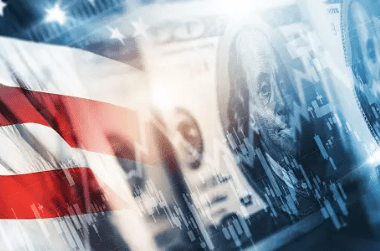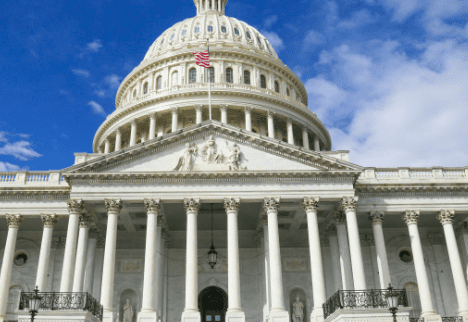The growth of the US economy this spring makes people optimistic that it can rein in soaring inflation without shrieking to a grinding halt. The economy expanded 2.8 percent from April to June thanks to consumer spending. Growth was faster than expected, and lower than in 2023.

These strong economic numbers come at a time when the presidential campaign is really heating up. Voters have been saying all along that the economy is their top concern. Normally, good economic growth would help the party currently in power—which, of course, are the Democrats. Not this time, though.
The unemployment rate currently stands at 4.1 percent, the number of people out of work. While this figure is low, it is rising. The economy is still growing but not as rapidly as in the earlier stages of the post-pandemic rebound. What’s more, prices have gone up a lot since 2021 and remain high, so things are expensive for families. It is also now more costly to borrow money.
Things just got even more unsettled with President Joe Biden’s decision not to run for president again. According to one of the top economists, Mark Zandi, there are mixed feelings about the economy at this point. He believes it is neither a big problem nor a big help with the election.
Experts had predicted that the economy would grow by about 2 percent this spring. Instead, the growth was higher, showing that the economy started slow this year and then rebounded. According to the Commerce Department, the growth was due to people spending more money, businesses investing more, and an increase in exports.

President Biden said the new economic report indicates that the US really does have the world’s strongest economy. On the other hand, Michael Lewis-Beck, a professor at the University of Iowa, said that economic growth during the first half of this year was not enough to offset the low popularity of Biden. Lewis-Beck uses a model for predicting election outcomes that is based on economic growth and presidential approval. His model put an estimate on a narrow loss for Biden based on the beginning of the year. He also warned that, with Biden out of the running, Democrats might actually face more challenges because they lose the advantage of having an incumbent president in their corner.
The election is going to be nail-biting and complex. Lewis-Beck underlined that his model had been off only three times since 1948—in years of vast change, as it is now. He said the current race is very uncertain.
Some analysts think Biden’s decision not to run may help Democrats. They can emphasize all the positives about Biden’s legacy—including investments in roads, bridges, advanced technology, and clean energy—while keeping their distance from negatives like high inflation. Danielle Deiseroth of Data for Progress, a progressive pollster, added that Vice President Kamala Harris could also gain at the expense of Biden by putting space between them on inflation.
Compared to Zandi, who was not so sure about Democratic victory earlier, he is now more confident about his firm’s prediction model. He feels that Biden’s move is a big political change. Still, small changes in the non-economic factors, say, in voter turnout, may yet give Trump the victory. The election is likely to be very tight.

How the economy goes in the next couple of months may yet influence the election. Most analysts do not expect huge changes until after November; some, however, think that the economy may weaken a bit. Many are projecting that the US central bank is going to ease interest rates in September to ward off further weakening. Lower interest rates will make borrowing cheaper for households and businesses, hence supporting the economy. Yet, the strong recent performance of the economy may undermine such a decision.
The Federal Reserve is the central bank of the US, and it takes great pride in being apolitical. If it taints interest rates lower, perceptions would be that it is helping the Democrats. So the Fed really is in a corner. Zandi says what the Fed resolves to do will be important for the economy and the election.








